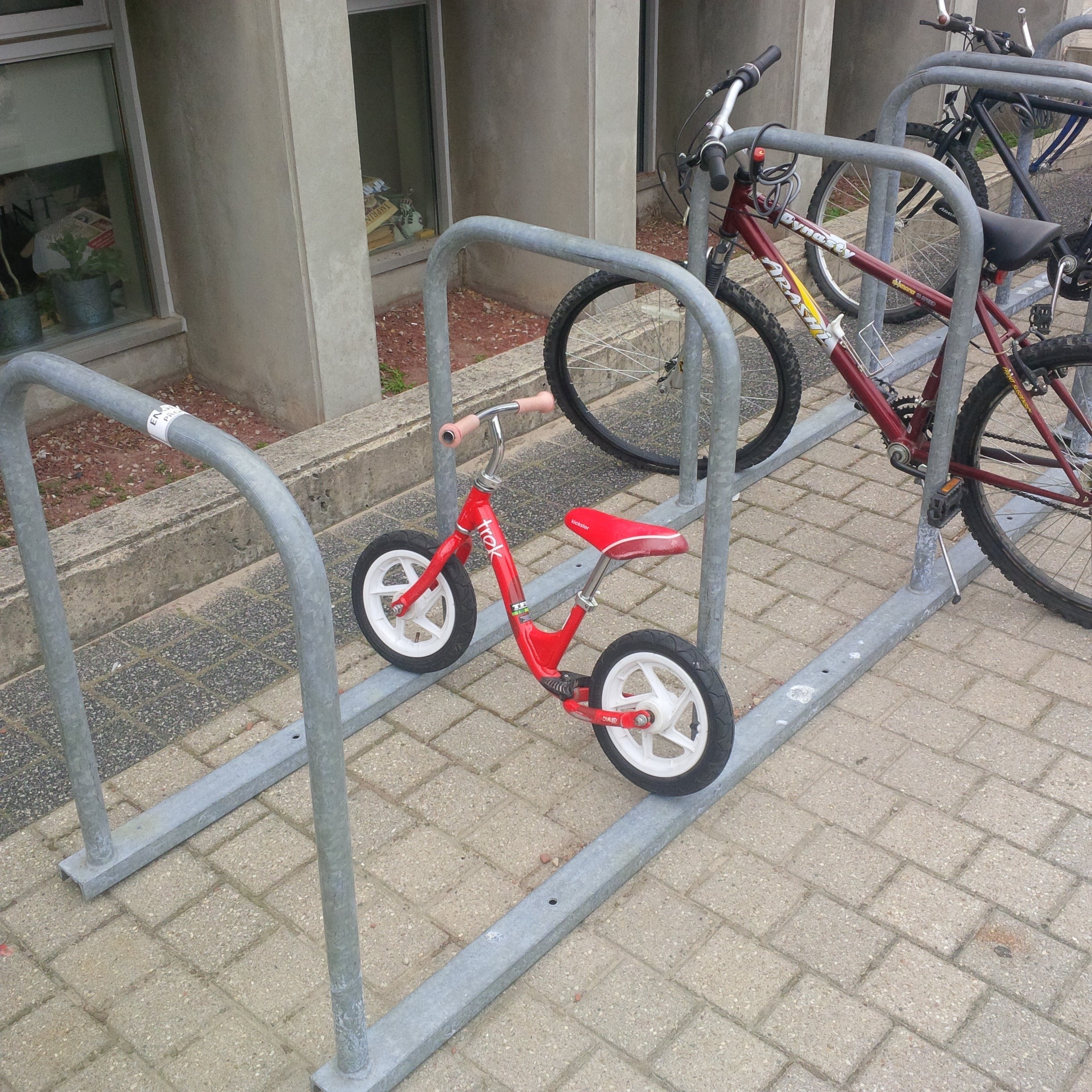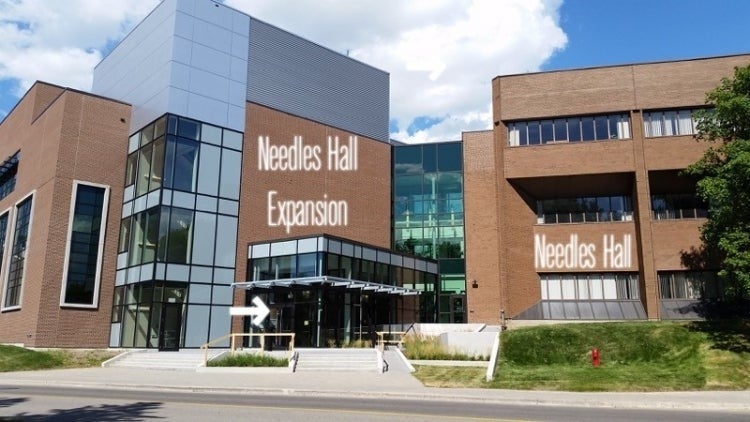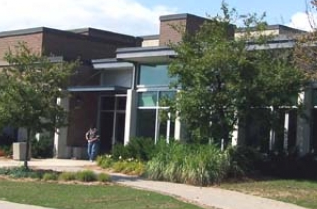Editor:
Brandon Sweet
University Communications
bulletin@uwaterloo.ca
Digital archive of political parties digs deep
If you ever suspected Canadian politicians flip-flopped on a specific issue, or wondered where they stand on another, a new online tool will help you easily find out for sure.
Professor Ian Milligan at the University of Waterloo is charting the content of millions of archived political webpages spanning the last decade, allowing the public to compare what Canadian political leaders and pundits said in the past compared to now.
WebArchives.ca pulls from collections that the University of Toronto Library has been collecting for a decade. Professor Milligan and his research team at Waterloo, as well as project collaborators from York University and Western University made the data searchable and accessible, drawing on code that staff at the British Library developed.
“We’ve got access to a collection of 50 archived websites from political parties and interest groups, allowing you to search them back to 2005,” said Milligan, a professor in the Department of History at Waterloo. “It means, for example, that anyone can find out what parties and groups said about climate change or free trade in the 2008 or 2011 election, or at any point between elections.”
A search comparing depression against recession shows parties and groups such as the Canadian Centre for Policy Alternatives, the Green Party and the Council of Canadians tended to describe economic downturn as depression, whereas the New Democrats, the Liberals and the Conservatives more typically use the term recession.
"We can use these searches to quickly find the historical allegories that some made towards the Great Depression, and economic action plans to remedy the situation,” said Professor Milligan.
Users can quickly access previously public content that is now stored as big data in a digital archive. The website’s search tool produces millions of historical results that wouldn't turn up in a Google search because the pages are no longer live. It also provides sophisticated analysis functions.
“You can run keyword searches, such as finding out the context of a word — Alberta and oil for instance — as well as being able to trace the prevalence of cultural ideas over time,” said Milligan.
The tool can trace how often a term or phrase appears in each year of the collection’s 10-year range. It contains interactive graphs where users can click on any point in a graph line to open all the citations associated with a specific term at a specific date.
In order to compare and analyze shifting rhetoric and platform points, users can compare what one party has said over the past few years about topics ranging from global warming to public transit. The tool also tracks the change in language, such as tar sands becoming Canada’s Oil Sands.
The project is possible through funding from the Social Sciences and Humanities Research Council of Canada (SSHRC) Insight Development Grant and an Ontario Ministry of Research and Innovation’s Early Researcher Award.
For retailers and GIS, it's location, location, location
by Sarah Steiner. This is an excerpt of an interview posted on the Piinpoint blog. Piinpoint, an online platform that enables businesses to find the best location for expansion, was founded in 2013 by Jim Robeson, a graduate of Waterloo's MBET program, and Adam Saunders, a Geomatics and Computer Science student.
Think GIS is mostly used for mapping weather patterns and population? Think again. We had the chance to speak with University of Waterloo professor, Dr. Derek Robinson, who tells us why GIS tools and spatial analysis are critical to today's retailers.
PiinPoint: Tell us a little bit about you and how you got involved in the GIS world.
Dr. Robinson: I first became interested in GIS in high school - I found working with computers to be a lot of fun and the interdisciplinary nature of geography really exciting. I was at IE Weldon Secondary School in Ontario and my teacher at the time, Mr. Miller, introduced me to the world of GIS and everything that it is capable of doing. After doing some reading outside of school classes about GIS I talked with the department head at the time, Mr. Hancock, who was a former Waterloo grad, and he pointed me to the University of Waterloo. The University of Waterloo became an academic playground for me. The sheer number of courses for GIS, having work placements in various places in Canada and abroad through the co-op program - those experiences made GIS an exciting area to work in, especially when it was combined with being submersed in the innovative and commercial spirit of Waterloo.
PiinPoint: How did you become involved in using GIS for retail?
Dr. Robinson: When I started as a professor at the University of Waterloo in 2012, one of the courses I took on had a retail location assignment. I got excited about that assignment since it was something I could talk about with my family to help them understand what I do as a professor. It was easy for them to visualize and make sense of the idea of locating a new store. I quickly got involved in that assignment and blew it up into a full blown research proposal that funded 4 masters students. Through sheer joy of education and learning, I went after making a dent in the retail science side of things.
PiinPoint: Tell us about GIS and retail. How long has GIS been used in a retail application?
Dr. Robinson: The capacity has been around a long time but it seems not many are using it, which is surprising, because you would think that with the majority of data having some sort of spatial component, it can make a big difference in your bottom line. Perhaps what I mean is that many individuals or companies use GIS or have someone working with GIS, but it is often highly underutilized in retail applications.
PiinPoint: Can you give us some examples of the types of applications you've seen GIS used in for retail?
Dr. Robinson: GIS has been used in a traditional sense for a while, for suitability analysis and trying to find a location for a new store. One area of research and application that I find really interesting is for tracking shoppers in a mall. Using GIS and GPS or other sensors, you can identify not only what shops they visited, but also the order that shops were visited, the length of time they spent there, the transit time between shops, how close they were to a shop when they were taking a break, plus their way-finding through the mall to find a shop. That is interesting on so many different fronts, because you’re tracking all these people and their behavioural information - but it’s also cool from a modelling perspective, since it’s a closed system.
Another neat application, is the use of agent-based modelling. For example, a fellow colleague in the Geography Department here at the University of Waterloo, Dr. Deadman collected data on park visitors at a state park in the US - somewhat similar to this mall situation - to see where conflicts between different types of visitors were occurring in the park. They had jeeps, bikers, and hikers if I remember correctly. The really exciting part of his research was that it was used to empirically inform a simulation model which he could use to optimize the visiting schedule. These agent based models, are simulations that can do things that mathematics and statistics can’t do on their own. The application of agent based modelling to retail is what I think is going to be really exciting, and it’s only in its infancy at this point in time. It gives you a platform to ask ‘what-if’ questions and pose scenarios to see how different scenarios pan out. Probably the most well known example is from a researcher in the UK, named Alison Heppenstall, who’s done some gasoline retail price competition setting work using agent based models in the UK.
Read the rest of the interview with Professor Robinson on the Piinpoint blog.
AccessAbility Services on the move; other notes

Is it just me, or are students getting younger?

Another academic support unit is making the move into the Needles Hall extension. "AccessAbility Services is moving," says a note from Amanda Annarilli. "Beginning Monday, August 31, you’ll find AccessAbility Services on the first floor of the new Needles Hall extension, room 1401."
AccessAbility Services will occupy the first floor of the new building, with spaces on the garage level to support the student access van drop-op as well as scooter charging. Other amenities include more exam space to better accommodate students and a new technology lab.
The office will remain open during the move.

The west side front entrance of the Student Life Centre at the Ring Road will be closed for repairs starting Friday, August 28 until Friday, September 5.
Registration is open for the Fall 2015 Velocity Alpha program, the series of sessions, workshops, panel discussions and brainstorming sessions that give startups and entrepreneurs skills and experience for starting and growing their businesses. Velocity Alpha sessions include "Find Your Kick A$$ Idea," "What's Your Problem," "Ain't No Model Like a Business Model" and "Find Your Customers Online." The sessions are held at the main campus and are open to anyone interested in building a startup.
Human Resources reports that Anne Lynk is retiring as of September 1. Anne joined the University in September 2004 and retires as Food Services Assistant in Food Services.
Registrar's Office closed Friday
The Registrar’s Office and Student Awards & Financial Aid will be closed from 11:30 a.m. until 1:30 p.m. for an office event on Friday, August 28.
Link of the day
350 years ago: Ye Bare and Ye Cubb opens to rather poor reviews
When and where
Date for students to be "Fees Arranged", Thursday, August 27.
Retirement celebration for Byron Murdock, Thursday, August 27, 3:30 p.m., DC 1301.
Spring co-operative work term ends, Friday, August 28.
International Orientation event, Friday, September 4 to Sunday, September 6.
Single & Sexy open performance, Friday, September 4, 10:00 a.m., Humanities Theatre.
Family Welcome events, Saturday, September 6 and Sunday, September 7, 8:30 a.m. and 11:30 a.m.
Family Send-Off events, Saturday, September 6 and Sunday, September 7, 2:30 p.m.
Orientation Week, Saturday, September 6 to Saturday, September 12.
Labour Day, Monday, September 7, most University operations closed.
Single & Sexy, Tuesday, September 8 to Thursday, September 10, Humanities Theatre.
Engineering presents ExpecTAtions Teaching Assistant Workshop, Wednesday, September 9 and Thursday, September 10, J.R. Coutts Engineering Lecture Hall.
Making Exam Marking Easier, Thursday, September 10, 1:00 p.m., QNC 1502. Register by sending an email to cmadmin@uwaterloo.ca by Wednesday, September 9.
Lean in Higher Education Conference, Thursday, September 10 to Friday, September 11, Federation Hall.
Lectures begin, Monday, September 14.
Centre for Career Action presents Rock the Technical Interview, Monday, September 14, 6:00 p.m. to 7:30 p.m., TC 2218
Faculty of Science Graduate Scholarship Information Session, Monday, September 14, 4:00 p.m., Humanities Theatre.
Weight Watchers At Work registration session, Tuesday, September 15, 12:15 p.m., PAS 2438, info ext. 32218.
Waterloo Innovation Summit, Wednesday, September 16 to Friday, September 18.
UWRC Book Club featuring Station Eleven by Emily St. John Mandel (One Book One Community Selection), Wednesday, September 16, 12:00 p.m., LIB 407.
Noon Hour Concert: Earth Voices, Wednesday, September 16, 12:30 p.m., Conrad Grebel University College Chapel.
Writing Centre Open House, Wednesday, September 16, 1:00 pm to 4:00 p.m., South Campus Hall second floor.
Gustav Bakos Observatory Tour, Wednesday, September 16, 9:00 p.m., PHY 308.
Translating Academic Experience to Industry, Thursday, September 17, 1:30 p.m. to 3:30 p.m., TC 1208.
Mathematics graduate studies information night, Thursday, September 17, 4:30 p.m., MC 5501.
Faculty of Science Graduate Scholarship Information Session, Thursday, September 17, 5:00 p.m., Humanities Theatre. (Note: attendees only need to attend one of the two sessions).
Medical School Applications (OMSAS), Thursday, September 17, 5:30 p.m. to 8:00 p.m., TC 1208.
Résumés for Graduate Students, Friday, September 18, 2:30 p.m. to 4:00 p.m., TC 1208.
Hack The North, Friday, September 18 to Sunday, September 20.
Quiet Research, Loud Results! Saturday, September 19, 10:00 a.m., TechTown building.
Conrad Grebel presents Peace Week, Monday, September 21 to Saturday, September 26.
It’s All About Your Skills, Monday, September 21, 10:30 a.m. to 12:30 p.m., TC 1112.
Senate meeting, Monday, September 21, 3:30 p.m., Needles Hall.
Velocity Science: Brainstorming, Tuesday, September 22, 7:30 p.m., QNC room 1506.
WPIRG presents September Slam: Humble the Poet & KWPS, Thursday, September 24, 7:00 p.m., Humanities Theatre.
The Birth of Homeopathy out of the Spirit of 1800: Medicine as Cultural History, Friday, September 25, 7:00 p.m., Location TBA. Presented by the Waterloo Centre for German Studies.
Ontario Universities' Fair, Friday, September 25 to Sunday, September 27, Metro Toronto Convention Centre.
Hack4Health, Saturday, September 26 to Sunday, September 27, Waterloo Accelerator Centre.
Annual Traditional Pow Wow, Saturday, September 26, 12:00 p.m., Waterloo Aboriginal Education Centre, St. Paul's University College.
The Ceremony of Induction into Professional Planning Education, Saturday, September 26, reception and registration in Environment 3 Atrium, 9:30 a.m., ceremony in Theatre of Arts, 11:00 a.m.
English Faculty Research Series: Mediated Bodies, Friday, October 2, 1:30 p.m., HH 373.
40th Anniversary Mathematics Reunion - Class of 1975, Friday, October 2 to Saturday, October 3.
Reunion 2015, Saturday, October 3.
AHS Annual Fun Run, Saturday, October 3, 8:30 a.m., BC Matthews Hall.
Further Education Boot Camp, Saturday, October 3, all day, RCH.
Fall Teaching Week, Monday, October 5 to Friday, October 8.
PhD Oral Defences
Electrical & Computer Engineering. Yaoqiang Li, "An Energy-Efficient System with Timing-Reliable Error Detection Sequentials." Supervisor, Manoj Sachdev. On deposit in the Engineering graduate office, PHY 3003. Oral defence Wednesday, September 9, 1:30 p.m., EIT 3141.
Mechanical and Mechatronics Engineering. Jennifer Bastiaan, "Design of a Smart Tire Sensor System." Supervisor, Amir Khajepour. This thesis is restricted but on display in the Engineering graduate office, PHY 3003. Oral defence Wednesday, September 9, 1:00 p.m., E3 4117.
Religious Studies. Jamie Anne Read, "J'y Sui. Pour de Bon.": Montreal Jewish Education and the Social Construction of Diaspora Identity." Supervisor, David Seljak. On deposit in the Arts graduate office, PAS 2428. Oral defence Wednesday, September 9, 1:30 p.m., HH 373.
Physics & Astronomy. Shane Farnsworth, "Standard model physics and beyond from non-commutative geometry." Supervisors, Latham Boyle, Robert Myers. On deposit in the Science graduate office, PHY 2008. Oral defence Friday, September 11, 9:00 a.m., PHY 352.
Psychology. Kevin Barton, "Testing the spatial affordance hypothesis: Evidence from factor analysis, mathematical models, and behavioural analysis." Supervisor, Colin Ellard. On deposit in the Arts graduate office, PAS 2428. Oral defence Friday, September 11, 10:00 a.m., E5 3052.
Chemistry. Seyedehfatemeh Rahnemaye Rahsepar, "Surface Interactions of Proteinogenic Biomolecules and Gold Nanostructures on Si(111)7x7. Supervisor, Kam Tong Leung. On deposit in the Science graduate office, PHY 2008. Oral defence Friday, September 11, 12:00 p.m., C2 278.